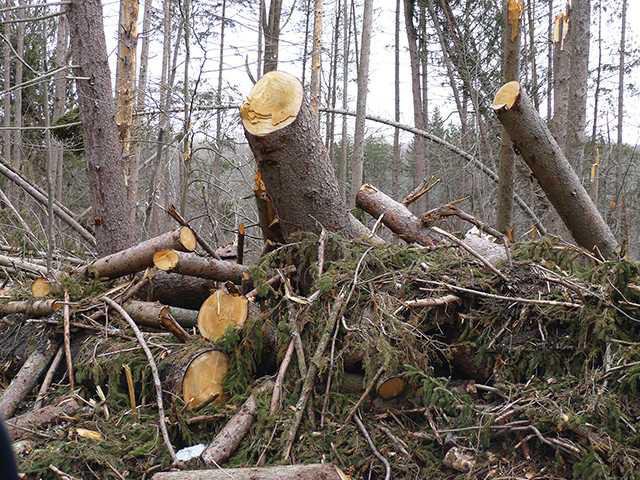There are several resources now available to African American landowners that aren’t quite sure how to manage their land or deal with heirs’ property issues.
The McIntosh Sustainable Environmental and Economic Development (McSEED) recently won a grant to focus on the new Sustainable Forestry Land Retention program.
SFLR is part of the U S Endowment for Forestry and Communities under the U.S. Department of Agriculture. The program started in Virginia, South Carolina and Alabama four years ago and has been extended into Mississippi and Georgia including Liberty, Long and three other counties.
The program focuses on African American landowners who have at least 10 acres.
McSEED Executive Director John Littles said the objectives are land retention, forest protection and preservation, owners’ stewardship plans, timber harvesting, estate resolution, wildlife management and soil conservation.
Program organizers had a meeting in October at Dorchester Academy to try to identify those in need of the resources. Project coordinator David Kelly said about 50 local landowners attended.
"There is an enrollment process that follows," he said.
People at the meeting were asked to fill out a profile about their property and their estate planning.
"...everybody has a little bit of both going on," Kelly said.
Similar meetings were held in McIntosh County earlier in the year.
"In 1900, African Americans owned between 15 and 18 million acres of land in the United States," Kelly said. "Today, and depending on which organization you get the numbers from, they own somewhere around 2 million."
Littles said he wants landowners to see their property as an asset, not tax liability. He said McSEED recently bought 1,148 acres in Long County to create a community forest.
"And with that we wanted to utilize that land as a training ground on specific practices," Littles said.
They want to show landowners correct environmental and sustainable practices for forestation.
Kelly said forestry is too often neglected in Georgia, but done correctly could turn profits for landowners.
"Some of the activities we’ve done out there so far has been reforestation," Littles said. "We harvested about 100 acres and replanted a little over 100 acres. And then this fall we will continue with this process… maybe an additional 50-80 acres that we will do reforestation."
Littles said SFLR will provide technical assistance, education, training and possible financial assistance. Participants will learn how to create forest management and marketing plans, as well as how to diversify land use to increase profitability.
"In our work of doing community organizing and development and as we traveled across the South we noticed there were a lot of issues around land retention and the big issue of heirs’ property," McSEED Project Manager Cheryl Peterson said. "We found that a lot of African American landowners had their properties tied up…there wasn’t clear ownership to the land."
According to the USDA, heir property refers to land that has been passed down informally from generation-to-generation. In most cases, it involves landowners who died without a will. Heirs’ property is land owned "in common" by all of the heirs, regardless of whether they live on the land, pay the taxes, or have ever set foot on it. Heir property is the leading cause of African American involuntary land loss.
Another McSEED meeting is planned for 6 p.m. Dec. 6, at the Dorchester Academy. For more information on the program call 912-437-7821 or visit: www.mcintoshseed.org.

